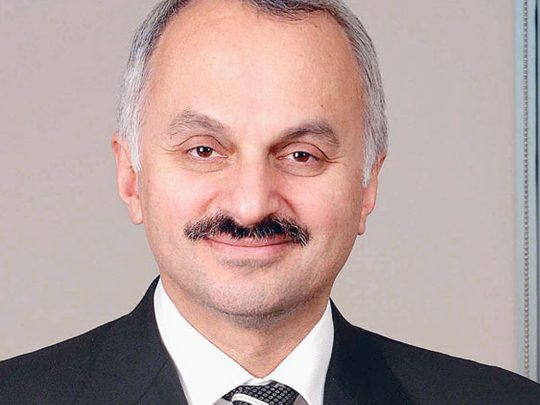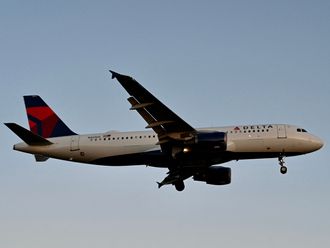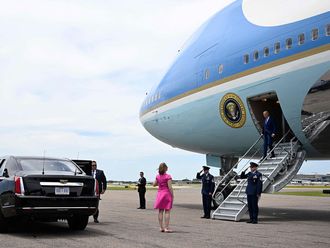
Dubai: If European airlines were to move to Turkey, they would perform much better.
"It is the best hub for Europe," Temel Kotil, president and chief executive of Turkish Airlines, believes.
His position is based on the economies of scale — a proportionate saving in costs gained by increased productivity.
While other European carriers are based in hub cities, carrying many passengers over short distances, Turkish Airlines, which is based on the edge of Europe, avoids short distance travel and also benefits from easily reaching other important markets, such as Asia, according to Kotil.
Growth route
Turkish Airlines is rapidly expanding its fleet to overtake the big players in Europe.
It will take delivery of 12 aircraft this year, boosting its fleet to 150.
It has another 89 on order, for which it has already placed the down payment, funded by the carrier's strong financial position and growing revenues.
Last year it generated about $4.6 billion (Dh16 billion) in sales revenues, a 15 per cent increase over the previous year.
Listed on the Istanbul Stock Exchange, the airline reported 2009 net profit of about $372 million, down 51 per cent from 2008 as a result of higher fuel prices and the global drop in air travel.
However, Kotil said that the current "weather is much better," with fuel prices stabilising and traffic returning.
To deal with fluctuating fuel prices, the airline said it hedged 20 per cent of its fuel requirements for this year for "better control on cost."
Kotil said it purchases fuel at a 24-month rollover at the existing price every month.
During the first quarter of the year the load factor jumped 4.2 per cent to 70.3 per cent.
It carried 6.2 million passengers, 26 per cent higher than in the same quarter the year before.
Passengers are expected to hit 31 million by year-end.
Kotil said the airline adds at least 10 new destinations annually, but this year it would introduce 13.
"We want to reach as many places as possible and our target is more cities in Europe," he said.
Besides Europe, the airline will focus on Asia-Pacific, Russia and Egypt.
Far East carriers which have been increasing their Western destinations and frequencies on their routes are posing a big threat to European carriers.
Kotil said that while the airline focuses on quality and a full three-class product, passengers must pay high fares for most European airlines.
"If passengers taste the good quality of Turkish Airlines, they will complain about European companies," he said.
"Other European airlines have high fares and frequencies but low quality."
The Euro-Asian corridor's share of intercontinental traffic accounts for 66 per cent of world travel.
"We like Middle Eastern airlines. In the same markets. Competition is there but we have destinations that they don't," Kotil said.
However, as Arab carriers grow larger and put more European destinations on their route maps, Kotil believes the market is "big enough" for all to share.
ICAO figures show the European market accounts for 28 per cent of global passenger traffic, while the Middle East represents only 6 per cent.
Tourism
Since Turkish Airlines is a semi-government airline, the country's expectations are high for Turkey's national carrier to help boost its tourism industry.
"We are expecting a growing number of tourists to come through (Turkish Airlines) as they are increasing their passengers and opening new destinations in the world," said Emin Kaya, cultural and information attaché at the Turkish Consulate General's Turkish Tourism and Cultural Office.
"Turkish Airlines has been making good profits for the last two years and they are getting better."
He said Turkey received 27 million tourists last year and expectations are to increase that number this year to 30 million, driven by the airline as well as the country's international promotional activities.
Currently, Turkey ranks 14th worldwide in passenger numbers at 28.1 million.
Turkey's main airport saw growth of 5.2 per cent in passenger throughput last year.
Turkish Airlines grew by 10.1 per cent while other airlines posted a combined loss of 4.3 per cent.








